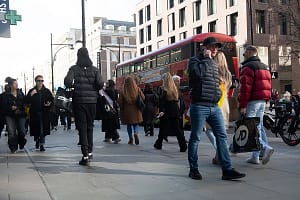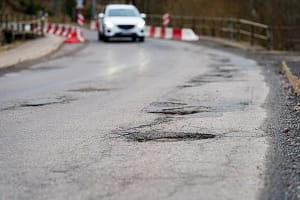A leading Oxford expert has claimed that coronavirus peaked a week before the government placed the UK into lockdown.
Professor Carl Heneghan, of evidence-based medicine at Oxford University, says that data shows coronavirus infection rates halved after Boris Johnson told people to wash their hands.
On 16 March the government announced the hand washing measures and told people to stay at least 2 metres apart.
Professor Heneghan said the government have “lost sight” of the scientific evidence and placed the UK into a lockdown on 23 March.
He also said that government scientific advisors have been “consistently wrong during the coronavirus pandemic.
The Professor praised Sweden for “holding their nerve” by “avoiding a doomsday scenario” as they have not enforced a lockdown.
Sweden has recorded 14,386 cases of infection, which places per capita an infection rate of 140 per 100,000 people.
A total of 1,540 deaths have been recorded, with a fatality rate of 15 per 100,000, compared to the UKs 182 people per 100,000 who have caught coronavirus, and 24 per 100,000 are dying from the virus.
Sweden’s economy is more stable than most European countries as they have no lockdown measures.
A quarter of Britons, or 1.4m have applied for unemployment benefits whilst Sweden has seen less than 6% claiming benefits.
Professor Heneghan, also a practising GP told the MailOnline, “The UK government keeps saying it is using the best science.
“But it appears to be losing sight of what’s actually going on.
“We’ve been getting scientific advice that is consistently wrong.
“It has failed to look at all the data and understand when the peak of infections actually occurred.
“The peak of deaths occurred on 8 April, and if you understand that then you work backwards to find the peak of infections.
“That would be 21 days before then, right before the point of lockdown.”
The Professor is referring to the delay it takes for a person to fall very sick and then die, which is an average of three weeks.
Britons with an upper respiratory tract infection, fell from 20 per 100,000 people on 15 March, up to 12 to six days later, data shows.
Professor Heneghan added, “50% reductions in infections occurred on 16 March, right when hand washing and social distancing was introduced.
“If you go look at what’s happening in Sweden, they are holding their nerve and they haven’t had doomsday scenario.
“Our government has got it completely the wrong way around.”
He criticised the government for the draconian lockdown measures and warned over the damage to the economy.
He added, “Look at our partners [EU]. They’re opening up again.
“We should be reopening society.
“We need to get a plan in place rapidly, we can’t wait three weeks then slowly open up.
“As well as major economic issues, austerity will impact people’s physical and mental health.
“The second issue of lockdown is that it’s making the public scared to engage with healthcare.
“People are avoiding going to GPs and hospitals because they believe there is so much infection there that they might catch it. That’s really damaging.”





Leave a Comment